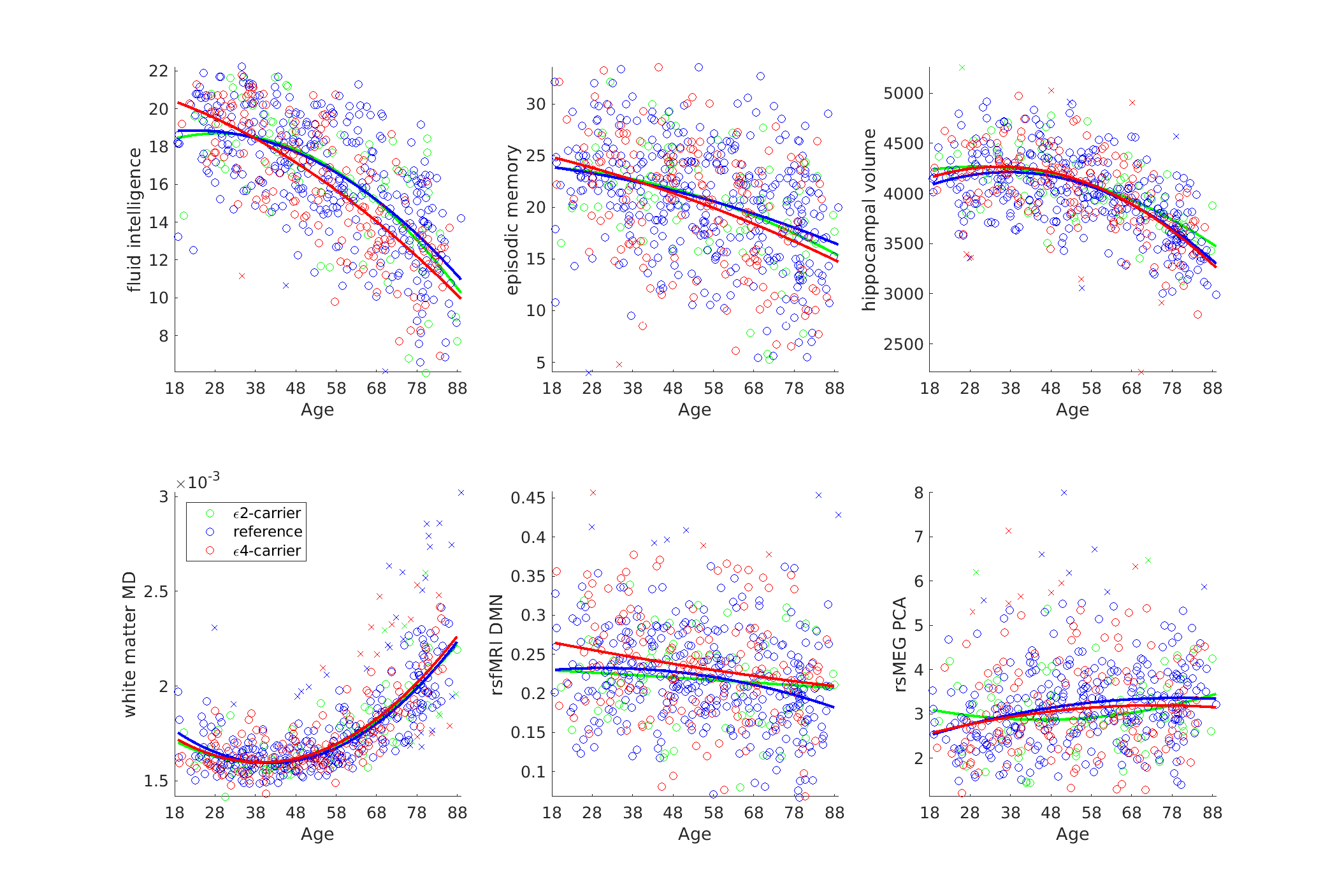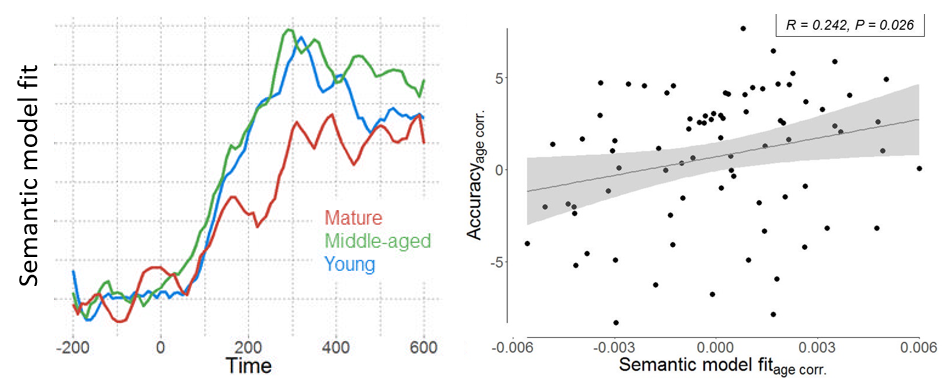The gene coding a protein called APOE has been implicated in Alzheimer’s Disease. However, in a registered report, we found no evidence that the e4 variant of the gene causes faster ageing of cognition or the brain.
Blood vessels are important for brain function
We review the changes that occur in the blood supply to the brain with age, and show how this can affect MRI scans of brain function. The distinction between blood supply and brain function calls for a new way to study how brain changes affect mental processes with age and age-related diseases.
Lifestyle choices have differential effects on cognitive resilience to ageing
We looked at five separable aspects of people’s lifestyles, such as physical and intellectual engagement, and investigated their relationship with crystallised and fluid cognitive abilities. All lifestyle factors significantly predicted age-adjusted cognitive abilities when tested separately. However, when testing simultaneously the independent contributions of different lifestyle factors to cognition, we saw a different pattern, with mental health not making a significant contribution above and beyond the other four lifestyle factors. Our paper highlights the importance of differentiating what we mean by ‘lifestyle’, and of applying sophisticated statistical tools to further understand the complex relationship tween peoples lifestyle choices and healthy cognitive ageing.
Motor skill learning gets harder with age, but owing to changes in explicit memory
‘Motor learning’ describes our ability to learn new skills, such as playing tennis or riding a bike. In youngdults, such motor skill learning uses automatic brain systems, called implicit memory. A new Cam-CAN study shows that as we get older, motor skill learning starts to rely on a different type of memory, called explicit memory, which relies on the hippocampus. Changes in the hippocampus explain why for many people, this type of learning gets more difficult as they get older.
Emotional positivity doesn’t always increase with age
Older people typically report higher levels of emotional well-being despite declines in other cognitive domains such as memory and executive function. We tested age-related changes in emotional reactivity and regulation using functional MRI, showing participants positive, negative and neutral videos and asking them how each one made them feel. Older people showed decreased rather than increased positivity in their reactions, which was linked to reduced brain activity in the middle frontal gyrus, an area associated with successful emotional regulation. Thus age does not always improve emotional regulation.
Perceptual and conceptual processing of visual objects across the adult lifespan
New research from Bruffaerts and colleauges investigated differences across the adult life-span in perceptual and conceptual processing by comparing neural measures of object processing to behaviour. Using magnetoencephalography (MEG), they showed better neural semantic processing is linked to both higher picture naming accuracy and higher levels of fluid intelligence. These results indicate that maintaining neural responsivity in older age confers benefits in task-related and domain-general cognitive processes.
Physical activity mediates the relationship between age and brain structural connectivity.
Juho Strommer and colleagues at CamCAN found that Physical Activity Energy Expenditure (PAEE) declines with Age (left plot) d partially mediates the relationship between Age and Fractional Anisotropy (FA) – a measure of white matter health – in several brain tracts like corpus collosum (right).
Cardiovascular health is associated with brain health across the lifespan
Research by Dr Delia Fuhrmann and colleagues shows that lower diastolic blood pressure, higher systolic blood pressure and higher heart rate are each strongly, and independently, associated with white matter lesion burden and microstructure in the brain. These results highlight the importance of maintaining cardiovascular health for healthy cognitive and brain ageing.
Communication plays an important role for cognition in old age
How do we sustain youth-like cognitive abilities despite brain-wide structural loss as we get older? While we know that brain function may play a role in this, it is unclear which aspect of brain function is particularly important, e.g. the extent to which brain regions are activated (functional activity) or the extent to which regions â<80><9c>talkâ<80><9d> to each other (functional connectivity). Research by Dr. Tsvetanov andolleagues indicates that functional connectivity, but not functional activity, becomes increasingly important for performance in old age. These insights may facilitate the development of new strategies to support cognitive ability in old age.
Mid-life activities protect old-age cognition against brain decline
Denis Chan and colleagues at the University of Cambridge studied 205 retired individuals from the CamCAN cohort and found that mid-life intellectual, physical and social activities made significant positive contributions to their current cognitive abilities (IQ). The positive effects of mid-life activities also appear to have a protective effect in the face of poor structural brain health.

 Cambridge Centre for Ageing and Neuroscience
Cambridge Centre for Ageing and Neuroscience










